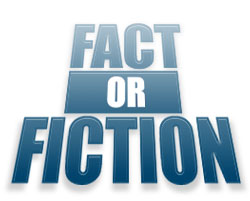Autobiographical fiction is the genre I’ve assigned for the short stories that I’ve written based on real events in my life. It is not truly autobiographical, because the characters are typically a third person who goes somewhere other than where I really went, but it is not truly fiction because it is based on real events. Some would argue, and rightly so, that all fiction is, at least in part, autobiographical.
What’s it like to be a teen prostitute? The short answer is, I don’t entirely remember. I only have snippets of memory here and there. The fragments I have are very vivid though. They make me cringe alone in the middle of the night. Out of all the crummy experiences I’ve had in my life, that’s the chapter I’ve written about the least. As far as I can remember, I’ve only written one story about that period. Why can I write detailed accounts of my experiences with domestic violence in the first person, but I still can’t write about child sexual abuse or prostitution in anything other than third-person?
I’ve started to write about the child sexual abuse I went through as a kid, which I think is good, but it mostly comes out as third-person fiction or as glancing blows, never direct hits. Lately, I’ve written two fictional stories about it; one from the perspective of a teddy bear, the other from that of a time traveler. Both are fiction based on real experiences.
Even though these are my memories that I’m tapping into, they don’t seem like mine. They seem like third-person. When I remember those times in my life, I tend to think of myself as a character in a book. I almost step outside of myself and watch rather than see it through my own eyes.
I step outside myself a lot. I am pretty sure I got this disassociative ability during child sexual abuse. It’s probably not healthy to step outside of yourself and see what’s happening through omniscient eyes. Some would consider it a form or manifestation of mental illness to experience your own life in third-person, but it can’t be helped.
That ability to disassociate is what allows me to write fiction. When I write fiction, I see it. I feel it. I know what my people look like, their facial expressions and their surroundings. I know how cold it is and what they’re wearing. I see the events unfolding before my eyes and I write it down. I could make my characters wear clown shoes or do a little dance, but they generally tell me what to do instead, like a lucid dream. I just write it down. I never experience fiction through my character’s eyes though. I typically see it from above like a stage play. I feel what the characters feel, but I am not them. I am merely an observer who has tapped into their consciousness for a while. I’m the puppet master.
Fiction is fascinating, isn’t it? I find it so anyway. The fact that we writers can step out of ourselves and experience another person’s life for a little while or even make up an entire universe for them to play in is really interesting. Where does it come from? Where do these characters that live inside of our brains come from? The same could be said for musicians or artists, or really, any creative endeavor with a finished product. Where does it live when we’re not working on it? What happens when the story is over? Where do our characters go after “the end”?
I’ve written more full-on fiction that really has nothing at all to do with my life than I have autobiographical fiction. The process is the same. It starts with an idea or an image or a piece of dialog, which percolates in my mind for a while until there’s enough meat or the words sufficiently bother me to the point where I can’t do anything else until I write it down. Sometimes, I see a prompt and a picture comes immediately to mind. Other times, it takes a long time to come to fruition. There’s no rhyme nor reason to it.
Incidentally, my regular blog posts work the same way. It usually starts with a topic I’d like to write about. Then a sentence forms in my mind. When there’s a paragraph, I go write it down. The only difference is that, with regular blog posts, I don’t see images or characters; I see words.
I enjoy writing autobiographical fiction the most. Actually, that’s not true. When I’m writing it, it’s pretty painful, but after it’s done, it gives me the greatest sense of accomplishment, more so than fiction that isn’t based on my life.
The fact that my latest piece of autobiographical fiction, One Night In Summer, was Freshly Pressed gave me mixed feelings. I had a sense of pride to be chosen for the honor again, but at the same time, it felt a little like an invasion of privacy. As if all of those people were in the woods with me watching that scared little girl, too, without an invitation. However, that little girl has spent too long alone in the dark, terrified. It’s time that she came out into the light. If the only way I can do that is through autobiographical fiction, for now, it’s good enough.
What’s your take on fiction? If you write fiction, do you disassociate from your characters and see them omnisciently or do you see the world through their eyes?
This post was inspired by an interesting post at Mindful Digressions on whether a non-fiction post can be turned into fiction by changing it to third-person. Do you think just changing pronouns in a first-person factual story can be considered fiction? Stop on by and weigh in.







